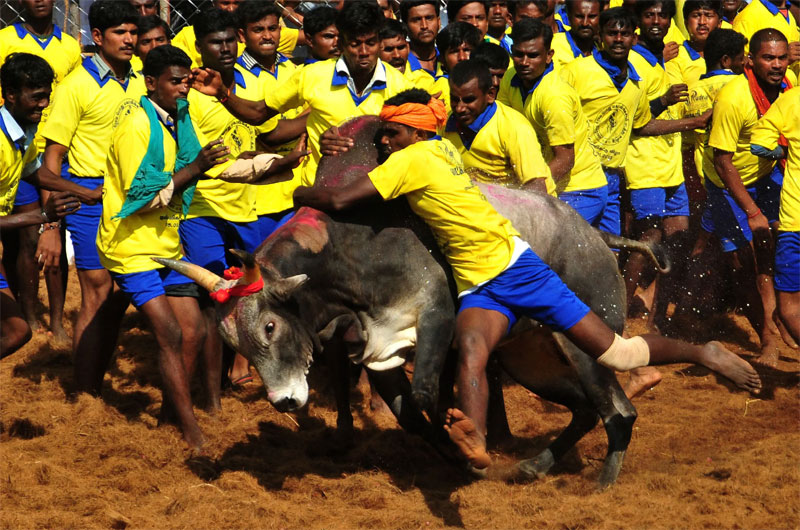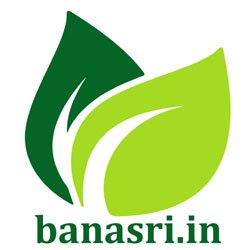
Festivals of Tamil Nadu: A Kaleidoscope of Culture and Devotion
Tamil Nadu’s festivals reflect its rich cultural heritage, deep-rooted traditions and vibrant community life. Each festival, with its unique customs and celebrations, offers a glimpse into the colorful and dynamic heritage of this southern Indian state.
1. Pongal
Time of Festival
- Celebrated in mid-January, coinciding with the Tamil month of Thai.
Specialty of the Festival
- A four-day harvest festival thanking the Sun God and nature for a bountiful harvest.
- Features the preparation of the special dish Pongal, made from freshly harvested rice and milk.
- Includes traditional activities like cattle decoration, rangoli making, and bull-taming events (Jallikattu).
Locality of the Festival
- Celebrated across Tamil Nadu, with significant festivities in rural areas.
Nature of the Festival
- Agricultural and cultural.
- Emphasis on gratitude, community bonding, and the celebration of nature’s abundance.
- Features traditional cooking, cultural performances, and community gatherings.
2. Tamil New Year (Puthandu)
Time of Festival
- Celebrated on April 14th.
Specialty of the Festival
- Marks the beginning of the Tamil New Year.
- Involves the preparation of a special dish called “Maanga Pachadi” made from raw mangoes, jaggery, and neem flowers.
- Houses are decorated with kolams (rangoli), and people visit temples to seek blessings.
Locality of the Festival
- Celebrated across Tamil Nadu, with significant events in Chennai and Madurai.
Nature of the Festival
- Cultural and religious.
- Emphasis on new beginnings, family bonding, and cultural traditions.
- Features temple visits, special meals, and festive decorations.
3. Thaipusam
Time of Festival
- Celebrated in January or February, during the full moon of the Tamil month of Thai.
Specialty of the Festival
- Dedicated to Lord Murugan, the god of war and victory.
- Devotees undertake acts of devotion, including carrying kavadis (ornate frames) and piercing their bodies.
- Includes a grand procession to Murugan temples.
Locality of the Festival
- Celebrated in Murugan temples across Tamil Nadu, with major events in Palani and Chennai.
Nature of the Festival
- Religious and cultural.
- Emphasis on devotion, penance, and spiritual purification.
- Features processions, body piercings, and community prayers.
4. Karthigai Deepam
Time of Festival
- Celebrated in November or December, during the Tamil month of Karthigai.
Specialty of the Festival
- Known as the Festival of Lights, dedicated to Lord Shiva.
- Involves lighting rows of oil lamps (Agal Vilakku) in homes and temples.
- The main event is the lighting of the Maha Deepam at the Arunachaleswarar Temple in Tiruvannamalai.
Locality of the Festival
- Celebrated across Tamil Nadu, with major events in Tiruvannamalai.
Nature of the Festival
- Religious and cultural.
- Emphasis on light, spirituality, and community bonding.
- Features lighting of lamps, temple rituals, and festive gatherings.
5. Navaratri and Dussehra
Time of Festival
- Celebrated in September or October, over nine days.
Specialty of the Festival
- Dedicated to the worship of Goddess Durga in her various forms.
- Involves setting up Golu (a display of dolls and figurines) in homes and temples.
- Includes traditional music and dance performances, community prayers, and feasts.
Locality of the Festival
- Celebrated across Tamil Nadu, with major events in Chennai, Madurai, and Coimbatore.
Nature of the Festival
- Religious and cultural.
- Emphasis on devotion, cultural traditions, and community participation.
- Features Golu displays, music, dance performances, and prayers.
6. Deepavali
Time of Festival
- Celebrated in October or November.
Specialty of the Festival
- Known as the Festival of Lights, marking the return of Lord Rama to Ayodhya.
- Involves lighting oil lamps, bursting fireworks, and special prayers.
- Houses are decorated, and traditional sweets and savories are prepared.
Locality of the Festival
- Celebrated across Tamil Nadu, with major events in Chennai and Madurai.
Nature of the Festival
- Religious and cultural.
- Emphasis on light, prosperity, and family bonding.
- Features lighting of lamps, fireworks, prayers, and festive meals.
7. Mahamaham
Time of Festival
- Celebrated once every 12 years, during the Tamil month of Masi (February-March).
Specialty of the Festival
- Known as the Kumbh Mela of South India, held in Kumbakonam.
- Involves taking a holy dip in the Mahamaham tank, believed to cleanse sins.
- Attracts millions of devotees and features grand temple processions and rituals.
Locality of the Festival
- Celebrated in Kumbakonam.
Nature of the Festival
- Religious and spiritual.
- Emphasis on purification, devotion, and community participation.
- Features holy dips, temple processions, and religious ceremonies.
8. Chithirai Festival
Time of Festival
- Celebrated in April or May, during the Tamil month of Chithirai.
Specialty of the Festival
- Celebrates the marriage of Goddess Meenakshi and Lord Sundareswarar.
- Features a grand procession of the deities, reenactment of celestial wedding, and temple rituals.
- Attracts thousands of devotees and tourists.
Locality of the Festival
- Celebrated in Madurai, centered around the Meenakshi Amman Temple.
Nature of the Festival
- Religious and cultural.
- Emphasis on devotion, tradition, and community celebration.
- Features processions, reenactments, and temple rituals.
9. Aadi Perukku
Time of Festival
- Celebrated in July or August, during the Tamil month of Aadi.
Specialty of the Festival
- A thanksgiving festival dedicated to the rivers, especially the Cauvery.
- Involves special prayers, floating lamps on rivers, and feasts.
- Families gather at riverbanks to celebrate and offer thanks for water’s life-sustaining properties.
Locality of the Festival
- Celebrated along the riverbanks of Tamil Nadu, especially the Cauvery River.
Nature of the Festival
- Cultural and religious.
- Emphasis on nature’s bounty, community bonding, and thanksgiving.
- Features riverbank gatherings, prayers, and festive meals.
10. Mariamman Festival
Time of Festival
- Celebrated in various months, depending on the local temple traditions, usually between March and July.
Specialty of the Festival
- Dedicated to Goddess Mariamman, the deity of rain and fertility.
- Involves fire-walking rituals, processions, and community feasts.
- Devotees seek blessings for health, prosperity, and protection from diseases.
Locality of the Festival
- Celebrated in various towns and villages across Tamil Nadu, with major events in Samayapuram and other Mariamman temples.
Nature of the Festival
- Religious and cultural.
- Emphasis on devotion, community bonding, and thanksgiving for rains and fertility.
- Features fire-walking, processions, and rituals.
11. Karthigai Murugan Festival
Time of Festival
- Celebrated in November or December.
Specialty of the Festival
- Dedicated to Lord Murugan, also known as Karthikeya.
- Involves grand processions, special prayers, and lighting of lamps.
- Famous for the “Sura Samharam” event, reenacting the victory of Lord Murugan over the demon Surapadman.
Locality of the Festival
- Celebrated across Tamil Nadu, with major events in Tiruchendur, Thiruparankundram, and Palani.
Nature of the Festival
- Religious and cultural.
- Emphasis on devotion, valor, and spiritual significance.
- Features processions, prayers, and reenactments.
